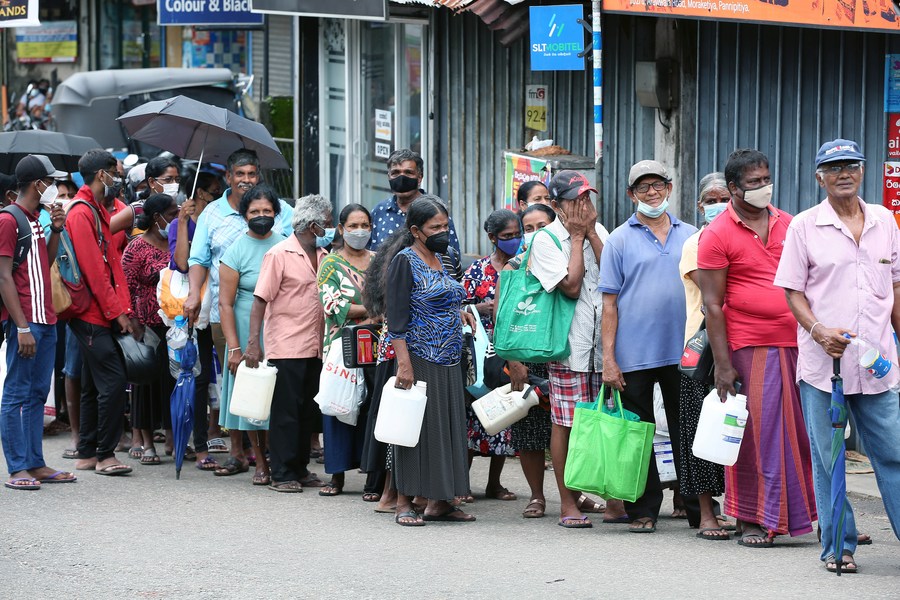Developing countries scapegoats for Washington
21ST CENTURY BUSINESS HERALD | Updated: 2022-07-14 07:10

The protests over the soaring living costs in Sri Lanka, Albania and Argentina show how global inflation is stirring political crisis and social chaos in emerging market economies and developing countries.
When the world experiences inflation, countries with resources such as Russia and Saudi Arabia will benefit from rising commodity prices, and industrialized countries with ample foreign exchange reserves are highly resistant, unless their internal economic bubbles are large.
But there is great risk of a food and energy crisis in the countries that have neither a resource advantage nor a manufacturing sector, but rely heavily on agriculture and services, and suffer from a combination of currency depreciation and rising commodity prices.
Resources are not inexhaustible. The real economy is the foundation of a country's economy, the fundamental source of wealth creation, and an important pillar of national prosperity. Outside the Western economies, the resource-poor East Asia's economic rise is based on manufacturing, which proves the only way for any economy outside the West to rise so far in the world after World War II.
For a long time, the global economy has been operated by a system centered on the United States and the US dollar. Most developing countries are "periphery countries", and every periodic turbulence in the "central country" will bring crisis to the "periphery countries". Such influence and destructive power is mainly due to the heavy dependence of the "periphery countries" on the dollar. Almost every change of US monetary policy will lead to periodic crises in some countries and regions.
The US has adopted an infinitely loose monetary policy in response to the impact of the COVID-19 pandemic since 2020, which has enhanced the financial nature of global commodities and pushed up commodity prices. Since the beginning of this year, the Federal Reserve's continued interest rate hikes have encouraged the outflow of dollars from emerging markets, and the rising dollar index has led to the depreciation of other currencies. Therefore, the developing countries have faced a combination of shocks, including severe inflation and fiscal and monetary crises for those dependent on energy and food imports.
When the "central country" faces systemic risks, it will try to transfer the costs and risks to other countries turning them into "scapegoats" for its internal problems.
So it is necessary for the developing countries to get rid of their dependence on the "central country" by improving their economic structure.
China has been actively improving its economic structure and developing its real economy. The country attaches great importance to coordinating development with security, strengthening food and energy security, and effectively forestalling systemic financial risks. At the same time, the construction of a unified national market promotes the domestic circulation, and gradually reduces its dependence on the external market. This has helped China increase its policy autonomy so it can counter imported risks.
Most other emerging economies are not yet in a position to improve their economic structure. China's Belt and Road Initiative will help developing countries industrialize and break away from their unequal dependence on the "central country".
























